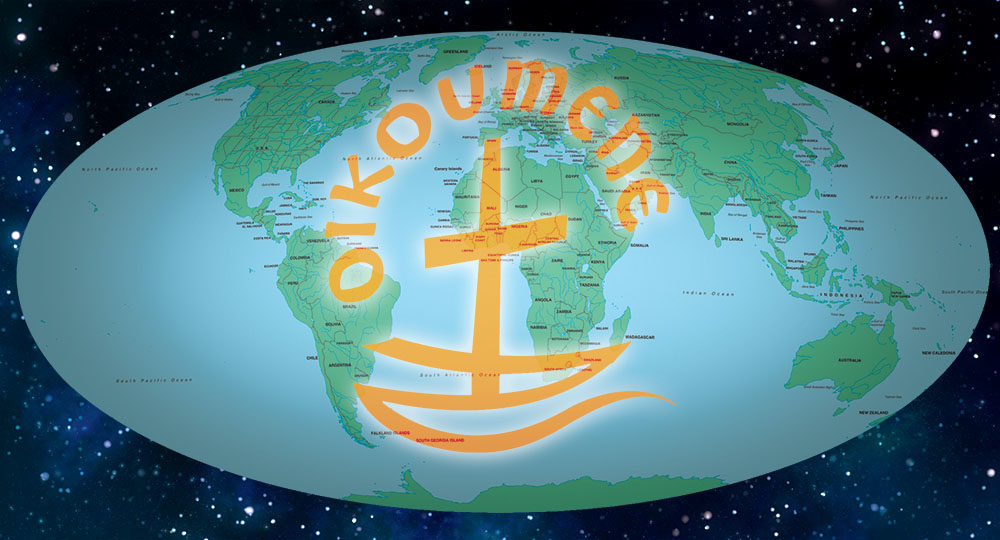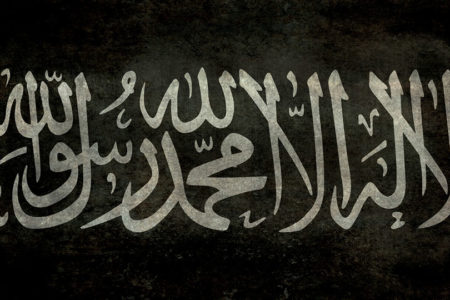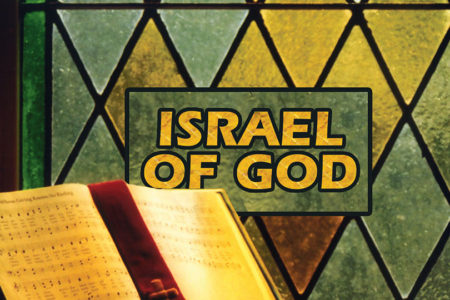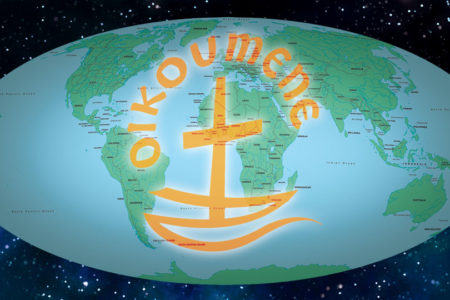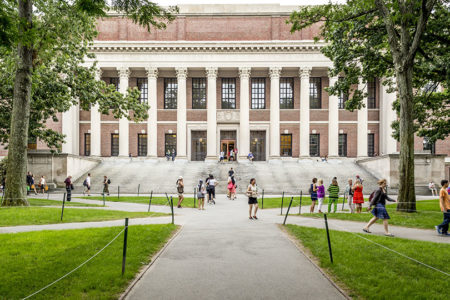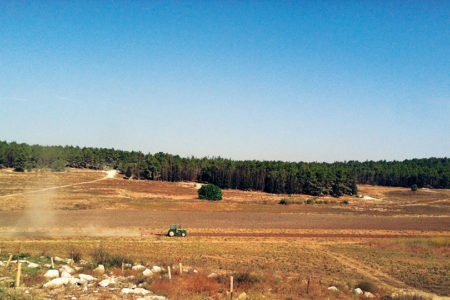Getting to Know the World Council of Churches
The World Council of Churches (WCC) describes itself as “the broadest and most inclusive among the many organized expressions of the modern ecumenical movement.”1
Its website boasts that it “brings together 349 churches, denominations and church fellowships in more than 110 countries and territories throughout the world, representing over 560 million Christians and including most of the world’s Orthodox churches, scores of Anglican, Baptist, Lutheran, Methodist and Reformed churches, as well as many United and Independent churches.”2
The banner under which it operates is the Greek word oikoumene (literally, “inhabited world”), which is prominently displayed in its logo; its website is oikoumene.org.
Yet the World Council of Churches is far from loyal to traditional Christian theology. It concentrates on socioeconomic issues and ecology, believes in redistribution of wealth, and is overtly pro-Palestinian. (See “The WCC: No Friend to Israel”)
In its early years, it operated on the basis of a Christocentric-universalism: Everyone will go to heaven based on Christ’s atoning work. Then, in the mid-1990s, under the leadership of General Secretary Konrad Raiser, it moved even farther from biblical doctrine to a more pluralistic form of universalism. Its paradigm today calls for a new understanding, in which “the institutional distinctions between church and world and church and society fall in to the background.”3
In other words, the WCC likes to think of the world as one enormous family and itself as helping that family socially and economically.
Trying to Heal the World
Raiser argues against Christian exclusivism and believes all religions somehow envelop Christ:
Wherever people have an experience of grace and salvation in their religions, they are encountering the “hidden Christ” and his work, even though they are not aware of it. They can thus be described as “anonymous Christians,” and the church is the “fulfillment” of the yearning for salvation which is alive in the religions of humankind.4
He also promotes a new understanding of oikoumene as “household of life,” in which he believes “ecological, social, political and ecclesiological dimensions of the oikoumene are linked in the closest way possible.”5
Ecumenism historically rallied around “oneness” as it related to churches and Christian witness in the world. Now, however, the WCC embraces “the unity of God’s whole creation and recognizes every human pursuit as subject to the healing ministry of Christ’s Spirit.”6
Consequently, social and political activism have become the matrix of the organization’s identity. The WCC now describes as “speak[ing] out with a strong voice to promote peace, justice and care for God’s creation”7 and working to “challenge each other on how to bear witness to Jesus Christ in all realms of life—personal, cultural and socioeconomic.”8
Redistribution of Wealth
The WCC’s Commission of the Churches on International Affairs was “among the first non-governmental organizations to obtain consultative status with the Economic and Social Council of the United Nations.”9
Under the umbrella of the AGAPE (Alternative Globalization Addressing Peoples and Earth) reference group on Poverty, Wealth and Ecology (PWE), the World Council of Churches promotes programs to repair the disparity between wealth and poverty. In other words, it promotes redistribution of wealth.
According to the WCC, the “agro-industrial-economic complex” of the “global North” (i.e. industrialized countries like the United States) is primarily responsible for the planet’s perceived economic and environmental crises. Because the bulk of today’s WCC churches are in the developing nations of Africa, Asia, the Caribbean, Latin America, the Middle East, and the Pacific,10 it sees regions like Europe and North America as perpetrators of the current global predicament.
Convinced that climate change and poverty are due to man’s impact on the planet and that the church is complicit by “perpetuating a theology of human rule over the earth,” the WCC advocates “recognition and application of a concept that expresses a deep moral obligation to promote ecological justice by addressing our debts to peoples most affected by ecological destruction and to the earth itself.”11
Apparently, the WCC has also taken upon itself the responsibility for this global redistribution of wealth. The WCC, PWE, and AGAPE published a joint statement suggesting, “As part of the study’s recommendations, it would be helpful to discuss taxation (as an explicit mechanism for redistribution of wealth and reparation for ecological damages) as well as measures to strengthen corporate accountability and responsibility (e.g. integrity pacts between corporations and communities).”12
Many churches allocate funds for the WCC in their annual budgets. According to its website, its “church families” include the following denominations: African Instituted, Anglican, Assyrian, Baptist, Catholic, Disciples of Christ/Churches of Christ, Evangelical, Friends (Quaker), Holiness, Lutheran, Mennonite, Methodist, Moravian, Old-Catholic, Orthodox (Eastern), Orthodox (Oriental), Pentecostal, Reformed, The Salvation Army, Seventh-Day Adventist, United and Uniting, and Free and Independent churches.13
If you want to know if your church helps fund the WCC, we recommend consulting your church leadership.
ENDNOTES
- “What Is the World Council of Churches?” World Council of Churches <oikoumene.org/en/who-are-we.html>.
- Ibid.
- Konrad Raiser, Ecumenism in Transition, trans. Tony Coates (Geneva, Switzerland: WCC Publications, 1991), 73.
- Ibid., 57.
- Ibid., 90.
- “About the WCC logo,” World Council of Churches <oikoumene.org/en/resources/wcc-logo.html>.
- “Witness,” World Council of Churches <oikoumene .org/en/home.html>.
- “The WCC and Christian witness” <oikoumene.org/en/resources/themes/christian-witness.html>.
- Ibid.
- “What is the World Council of Churches?”
- “Statement on eco-justice and ecological debt,” World Council of Churches, September 2, 2009 <tinyurl.com/8ngge4k>.
- “Meeting of the World Council of Churches’ (WCC) Alternative Globalisation [sic] Addressing People and Earth (AGAPE) Reference Group on Poverty, Wealth and Ecology (PWE),” World Council of Churches, June 27, 2007 <tinyurl.com/942hzb8>.
- “Church Families,” World Council of Churches <oikoumene.org/en/handbook/church-families.html>.
